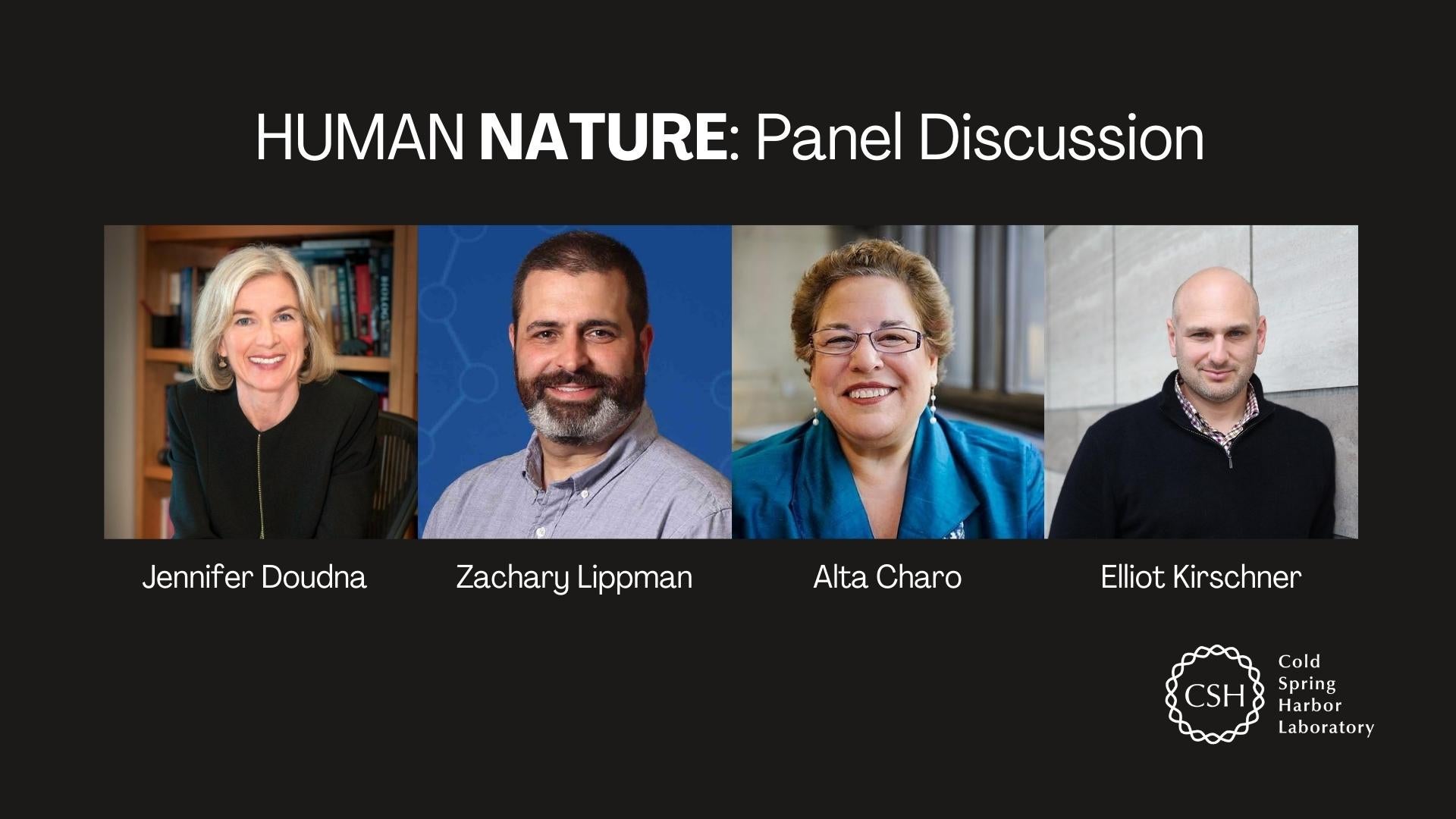On August 17, 2020, Cold Spring Harbor Laboratory (CSHL) hosted a panel of CRISPR experts to discuss the documentary, Human Nature. The panel, moderated by Elliot Kirschner, the executive producer of Human Nature, included: CSHL Professor and HHMI Investigator Zach Lippman, who uses CRISPR in his research on tomatoes and other plants; Jennifer Doudna, professor at the University of California-Berkeley and a co-creator of CRISPR; and Alta Charo, professor of law and bioethics at the University of Wisconsin-Madison.
Human Nature explores the use of the gene-editing tool CRISPR. Scientists discuss how they discovered and use the technology. They reveal their well-informed hopes and understandable fears. The filmmakers dive into the history of genetics research, and introduce us to people with genetic diseases. Patients and families discuss some of the surprising feelings they have about changing human genetic destiny. The three panelists discussed how CRISPR fits within their different fields, reflected on the implications for the future of human evolution, and answered provocative questions from viewers.
Lippman pointed out that gene-editing in crops is not as simple as people might believe, but it may be less risky than doing the same work in animals or humans. Lippman observed, “We walk down the rows and we’re looking at our genome-edited plants and we see something we don’t like, we go down and we rip it out and we throw it to the side. And, you know, we don’t feel ethically bad about this. This is part of the wonderful thing about being able to work on plants.” He is passionate about what CRISPR can accomplish. “I’m excited to walk down the field, look at these plants, see these trait variations, and then think about the chromosomes and the genes and everything that’s happening,” he said. “I think of it in terms of what we learned from Mendel’s peas, and what is now happening with genome editing.”
Watch the full panel below:
Written by: Sara Roncero-Menendez, Media Strategist | publicaffairs@cshl.edu | 516-367-8455
